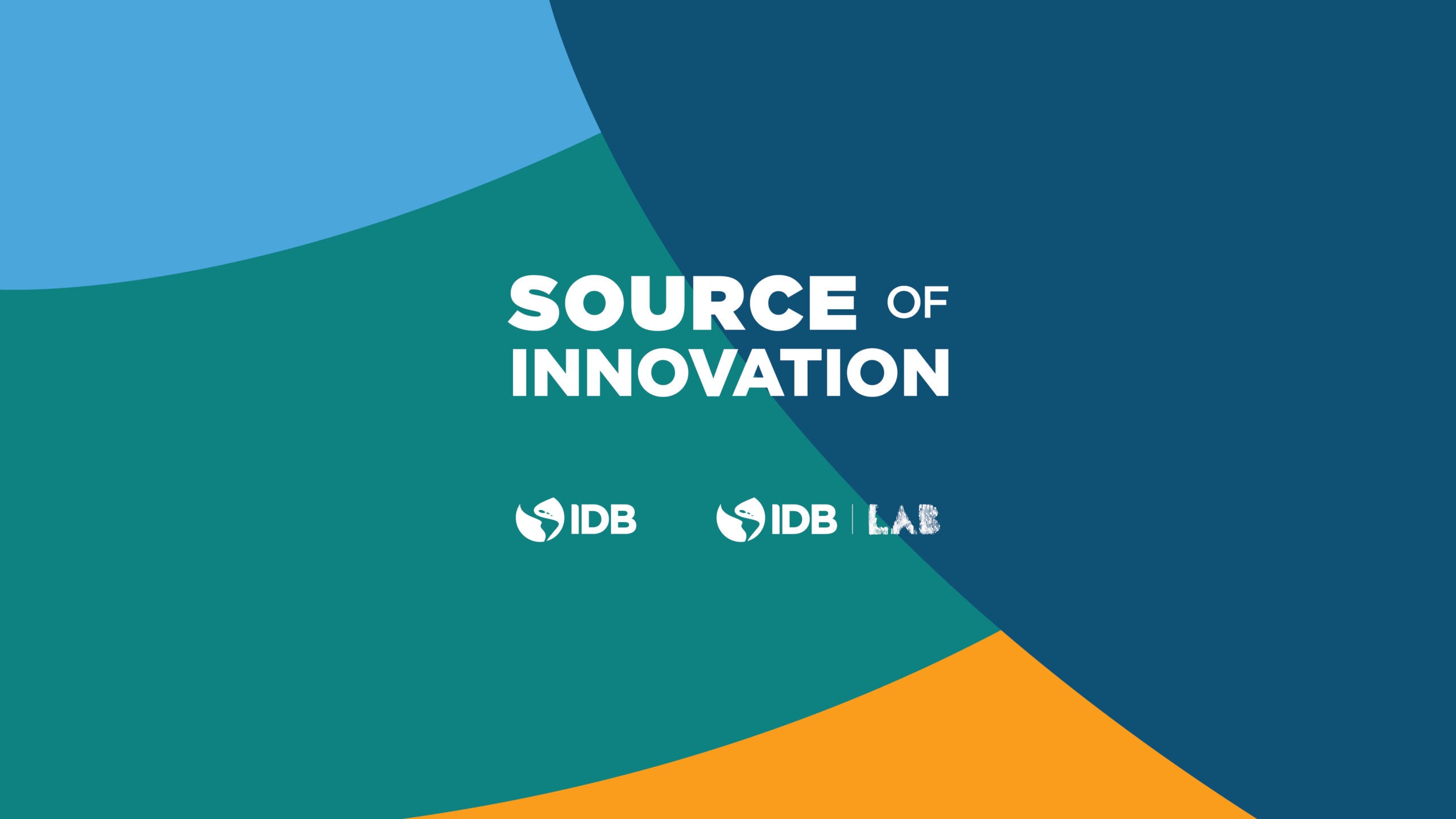Adopting innovation at all levels in water and sanitation provision and waste management is key to overcoming the historical gaps affecting the most vulnerable in Latin America and the Caribbean.
Recent studies by the Inter-American Development Bank (IDB) prove that innovation already plays a key role in the traditionally conservative water, sanitation, and solid waste sector in Latin America and the Caribbean (LAC). Typically, these innovations are more incremental than disruptive, often impeded by government procedures, organizational cultures, and lack of funding and investment in human capital. That being said, the potential impact of innovative solutions for service provision is substantial and a key for future growth, as stressed by the IDB’s Vision 2025, which promotes the digitalization of essential services.
To help the sector do more and better with fewer resources, we proudly present Source of Innovation (Fuente de Innovación in Spanish), a new initiative that aims to foster and support innovation in water, sanitation, and waste management in the region. As a joint effort between the Water and Sanitation Division and IDB Lab, it promotes the development and integration of innovative solutions that contribute to safely managed basic services for all. Source of Innovation counts on the support of the Swiss State Secretariat for Economic Affairs (SECO), the FEMSA Foundation, and the Government of Israel, among others.
The specific objectives of Source of Innovation are to (i) strengthen service providers’ capacity to adopt innovative solutions and products; (ii) boost the supply of innovative solutions; (iii) stimulate productive partnerships between startups and entrepreneurs, and service providers and investors; and (iv) promote culture and an enabling environment for innovation. To ensure a holistic approach, the initiative will support innovation in (i) technology, including digital transformation; (ii) governance and services; (iii) financing; (iv) and society, to determine how services can be delivered by incorporating users’ insights and addressing people’s needs. The initiative will also focus on gender and diversity challenges since women and minorities are the most affected by the lack of reliable services. Additionally, it will address climate change challenges, which make water an even more precious resource.
Source of Innovation promotes a new way of fostering innovation and building alliances between public and private actors, operators and startups, and communities and research centers. We need a combination of all these visions to build future solutions together in the sector.
To do more – and better – with less
In LAC, two out of three people still do not have access to safely managed water and sanitation services. Just think about this for a minute. Colombia receives the most rain, yet one-third of its urban population, and 40% of its rural population, do not have reliable access to water services. Although 140 million Brazilians have cellphones, 100 million of them still lack access to safe sanitation services. Only 4.5% of solid waste is recycled and 70 percent of the region’s waste detritus is burnt or ends up in open landfills, affecting the health of local ecosystems. It’s time for a change.
To achieve universal and reliable services for all, the region should multiply current investment levels by five. We need higher efficiency levels because post-pandemic fiscal constraints threaten existing investments. Innovative technological, institutional, financial, and social solutions are imperative to ensure that everyone gains access to safe services.
Opportunities are unlimited and available. By ensuring data and service reliability, digitalization can improve operating gains and reduce water supply failures. In waste management, Industry 4.0 approaches are being developed and implemented to enhance the circular economy. Smart recycling and artificial intelligence systems support new mechanisms to finance water infrastructure and management. Innovative business models flourish to provide safe and affordable services. Technical and social innovation plays a key role in closing the most persistent coverage gaps.
While these opportunities exist, LAC utilities are not taking them on at the scale and pace necessary. Recent studies suggest that operators, stakeholders, policymakers, and regulators still lack the tools to analyze advancements in innovation and to define clear strategic objectives or guidelines that foster a culture of innovation.
Among the main obstacles that hinder the development and promotion of innovation, a recent IDB study identified:
- A weak and fragmented demand side, with low innovation levels among service providers, which do not have internal incentive mechanisms to promote Research and Development (R&D).
- A supply side with few incentives, which fails to acknowledge, promote, and foster innovation. Innovators, startups, and entrepreneurs lack access to financing mechanisms. Consolidated incubation and acceleration opportunities are absent.
- Poor communication between demand and supply: service providers and innovators do not talk to each other.
- A scarcely developed innovation culture throughout the ecosystem. Most countries do not have, or have not completely implemented, a legal and institutional policy framework that favors innovation, and a culture of and for innovation is missing.
The challenges and the opportunities for innovation in water, sanitation, and solid waste were brought to the light, not only by the pandemic but also by climate change and the chronic gaps in coverage and quality of services. The time to act is now; innovation at all levels is no longer optional.
Come work with us and with Source of Innovation! We are calling all stakeholders of the water, sanitation, and solid waste ecosystem to join Source of Innovation and become part of the solution!
Contact us:


La tecnología de saneamiento está, así como el conocimiento y la innovación con Nanotecnología, considerando la eliminación de virus y patógenos en general.
Como siempre, el financiamiento no está a la altura.